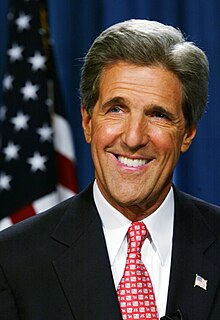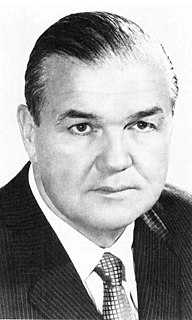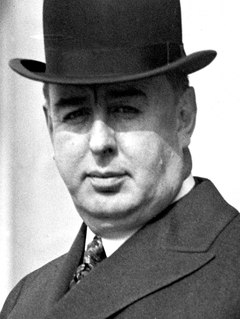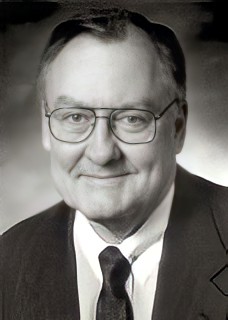
The 1956 United States presidential election was the 43rd quadrennial presidential election. It was held on Tuesday, November 6, 1956. The popular incumbent President, Republican Dwight D. Eisenhower, successfully ran for re-election. The election was a re-match of 1952, as Eisenhower's opponent in 1956 was Adlai Stevenson, a former Illinois governor whom Eisenhower had defeated four years earlier.

The Pineapple Primary was the name given to the primary election held in Illinois on April 10, 1928. The campaign was marked by numerous acts of violence, mostly in Chicago and elsewhere in Cook County. In the six months prior to the primary election, 62 bombings took place in the city, and at least two politicians were killed. The term "Pineapple Primary" originates with the contemporary slang term "pineapple" to describe a hand grenade.

The 2004 United States presidential election in Illinois took place on November 2, 2004, and was part of the 2004 United States presidential election. Voters chose 21 representatives, or electors to the Electoral College, who voted for president and vice president.

Michael J. Howlett Sr. was a Democratic politician from the U.S. state of Illinois, who was elected several times to statewide office.
Rosemary Mulligan served as a Republican Party member of the Illinois House of Representatives for ten terms, representing the 65th District from 1993 until 2013.
Illinois's 10th congressional district is located in the northern suburbs of Chicago in Cook and Lake counties, along Lake Michigan. Although reliably Republican in past elections, particularly before the latest redistricting, it voted for John Kerry in 2004, which made re-election in 2006 a challenge for Republican incumbent Mark Kirk. In his most difficult race since 2000, he prevailed by a 53% to 47% margin.

Thomas J. Dart is the Sheriff of Cook County, Illinois, and serves as the chief executive of the second largest such department in the United States after Los Angeles.

The 10th Congressional District of Illinois lies in the northeast corner of the state, and mostly comprises northern suburbs of Chicago. It was created after the 1860 census. The district is currently represented by Democrat Brad Schneider.
The US state of Illinois is a Democratic stronghold and one of the "big three" Democratic states alongside California and New York. It is considered one of the most Democratic states in the nation and following the 2018 elections, all six statewide elected offices are held by a Democrat.

The 2002 Illinois gubernatorial election pitted Congressman Rod Blagojevich against Illinois Attorney General Jim Ryan. Rod Blagojevich won 52% to 45%, marking the first time a Democrat was elected governor of Illinois since 1972.

The 2010 Illinois gubernatorial election took place on November 2, 2010. Incumbent Democratic Governor Pat Quinn sought and was elected to a full term in office. Quinn was elected as the Democratic nominee, the Illinois Green Party nominee was attorney and 2006 nominee Rich Whitney, the Republican nominee was State Senator Bill Brady, the Libertarian Party nominee was Lex Green, and Scott Lee Cohen ran as an independent. Governor Quinn won election to a full term in a very close race, beating Senator Brady by only about 32,000 votes, despite Brady winning in 98 of 102 Illinois counties.

The 2008 United States presidential election in Illinois took place on November 4, 2008, and was part of the 2008 United States presidential election. Voters chose 21 representatives, or electors to the Electoral College, who voted for president and vice president.

The 1992 United States Senate election in Illinois was held on November 3, 1992. Incumbent Democratic U.S. Senator Alan J. Dixon decided to run for re-election a third term, but was defeated in the primary against Carol Moseley Braun, who ended up winning the general election.

The 2000 United States presidential election in Illinois took place on November 7, 2000, and was part of the 2000 United States presidential election. Voters chose 22 representatives, or electors to the Electoral College, who voted for president and vice president.

The 2012 United States presidential election in Illinois took place on November 6, 2012, as part of the 2012 General Election in which all 50 states plus The District of Columbia participated. Illinois voters chose 20 electors to represent them in the Electoral College via a popular vote pitting incumbent Democratic President Barack Obama and his running mate, Vice President Joe Biden, against Republican challenger and former Massachusetts Governor Mitt Romney and his running mate, Congressman Paul Ryan. The Obama/Biden ticket won Illinois with 57.60% of the popular vote to Romney/Ryan's 40.73%, thus winning the state's 20 electoral votes by a margin of 16.87%.

The 2016 United States presidential election in Illinois was held on November 8, 2016, as part of the 2016 General Election in which all 50 states plus The District of Columbia participated. Illinois voters chose 20 electors to represent them in the Electoral College via a popular vote pitting the Republican Party's nominee, businessman Donald Trump, and running mate Indiana Governor Mike Pence against Democratic Party nominee, former Secretary of State Hillary Clinton and her running mate, Virginia Senator Tim Kaine.

In the Chicago mayoral election of 1915 Republican William H. Thompson defeated Democrat Robert Sweitzer.

The Chicago mayoral elections of 1876 is one only two instances in which a Chicago mayoral election was declared invalid.



















